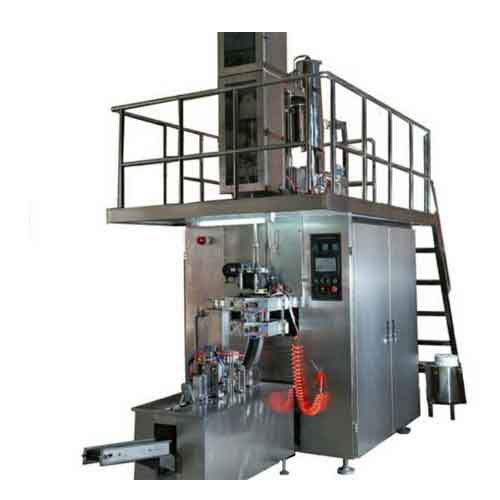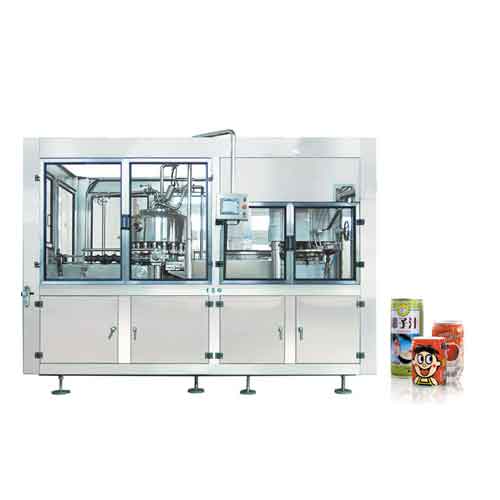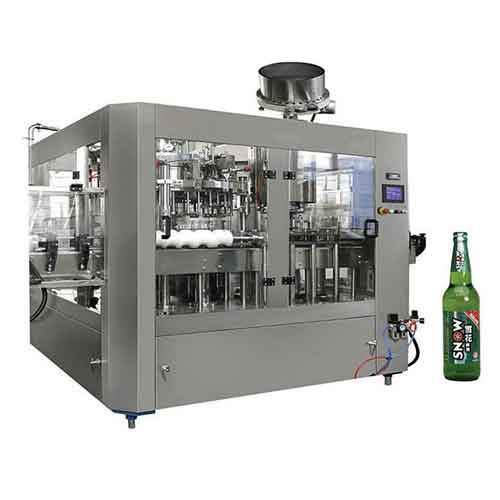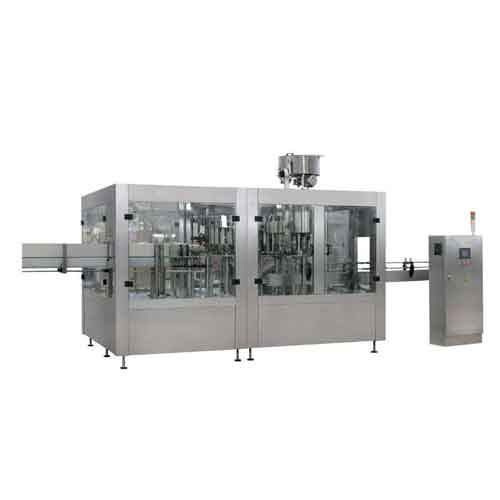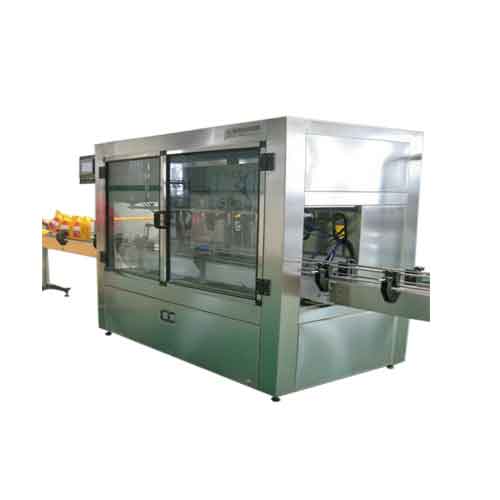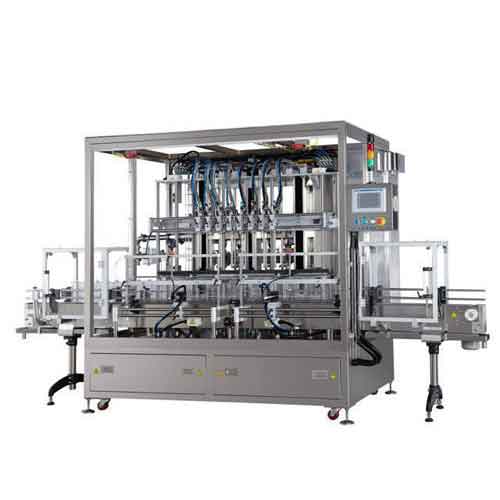Personnel training is very important in the production process, which can ensure the efficient operation of equipment and protect the safety of personnel. As a professional engaged in food machinery for a long time, it is recommended to start from the following points in personnel training:
1. Equipment Familiarization:
Introduction to Equipment Components: Provide a detailed overview of each machine, highlighting its key components and their functions.
Safety Features and Procedures: Emphasize the importance of safety devices and procedures, ensuring operators understand how to operate the equipment safely.
2. Start-up and Shut-down Procedures:
Equipment Start-up: Train operators on the correct sequence and procedures for starting up the entire production line, ensuring a smooth and controlled initiation of operations.
Shut-down Procedures: Instruct operators on the systematic shut-down of the production line, emphasizing safety protocols and proper storage of equipment.
3. Operating Parameters and Settings:
Understanding Control Systems: Familiarize operators with the control panels and systems, explaining each parameter and its impact on the production process.
Optimal Settings: Provide guidance on setting parameters such as temperature, pressure, and speed to achieve desired production outcomes.
4. Quality Control and Assurance:
Identifying Quality Indicators: Educate operators on how to recognize visual, olfactory, and taste cues for assessing the quality of olive oil.
Quality Assurance Procedures: Train operators in implementing quality checks at various stages of the production process to ensure compliance with industry standards.
5. Maintenance and Troubleshooting:
Routine Maintenance Tasks: Instruct operators on regular maintenance tasks, including cleaning, lubrication, and minor adjustments.
Troubleshooting Skills: Provide problem-solving techniques to address common operational issues and escalate complex problems to maintenance personnel.
6. Emergency Response and Safety Measures:
Emergency Procedures: Conduct training on responding to emergencies, including how to use emergency stop systems and other safety measures.
First Aid Training: Equip operators with basic first aid skills to address minor injuries or provide initial assistance until professional help arrives.
7. Hygiene and Sanitation Standards:
Personal Hygiene: Emphasize the importance of personal hygiene, including proper attire, hand-washing, and adherence to hygiene protocols.
Equipment Sanitation: Train operators on cleaning procedures to maintain a sanitary production environment and prevent cross-contamination.
8. Record-keeping and Documentation:
Maintaining Production Logs: Teach operators how to accurately record production data, including batch numbers, quantities, and quality assessments.
Reporting Procedures: Establish protocols for reporting any deviations from standard operating procedures or equipment malfunctions.
Training Requirements:
Prerequisite Knowledge: Operators should possess a basic understanding of food processing principles and familiarity with industrial equipment operation.
Hands-on Practical Training: Provide ample opportunities for operators to practice their skills under supervision to reinforce theoretical knowledge.
Continuous Learning: Encourage operators to attend refresher courses and stay updated with industry advancements to enhance their proficiency.
By implementing a comprehensive training program encompassing these elements, operators will be equipped with the knowledge and skills necessary to proficiently operate an olive oil production line, contributing to the consistent production of high-quality olive oil.
Our company has been engaged in food machinery customization services since its establishment in 2014, according to customer needs for you to tailor suitable machinery and equipment, for more product information, please refer to: https://www.hnunmachinery.com/product/;Our expertise and advantages will bring you more opportunities and development space.
For personalized, industry-tailored advice and to explore state-of-the-art solutions, please don't hesitate to contact us at jodie@unmachinery.com or info@unmachinery.com.
The following is my summary of other olive oil production related content for your reference, I hope you do not take a detour.
1.Analysis of olive oil processing technology.
2.What are the storage requirements for olive oil?
3.What equipment does olive oil production line generally need?
4.How to install and debug olive oil production line equipment?
5.How to maintain olive oil production equipment?
1. Equipment Familiarization:
Introduction to Equipment Components: Provide a detailed overview of each machine, highlighting its key components and their functions.
Safety Features and Procedures: Emphasize the importance of safety devices and procedures, ensuring operators understand how to operate the equipment safely.
2. Start-up and Shut-down Procedures:
Equipment Start-up: Train operators on the correct sequence and procedures for starting up the entire production line, ensuring a smooth and controlled initiation of operations.
Shut-down Procedures: Instruct operators on the systematic shut-down of the production line, emphasizing safety protocols and proper storage of equipment.
3. Operating Parameters and Settings:
Understanding Control Systems: Familiarize operators with the control panels and systems, explaining each parameter and its impact on the production process.
Optimal Settings: Provide guidance on setting parameters such as temperature, pressure, and speed to achieve desired production outcomes.
4. Quality Control and Assurance:
Identifying Quality Indicators: Educate operators on how to recognize visual, olfactory, and taste cues for assessing the quality of olive oil.
Quality Assurance Procedures: Train operators in implementing quality checks at various stages of the production process to ensure compliance with industry standards.
5. Maintenance and Troubleshooting:
Routine Maintenance Tasks: Instruct operators on regular maintenance tasks, including cleaning, lubrication, and minor adjustments.
Troubleshooting Skills: Provide problem-solving techniques to address common operational issues and escalate complex problems to maintenance personnel.
6. Emergency Response and Safety Measures:
Emergency Procedures: Conduct training on responding to emergencies, including how to use emergency stop systems and other safety measures.
First Aid Training: Equip operators with basic first aid skills to address minor injuries or provide initial assistance until professional help arrives.
7. Hygiene and Sanitation Standards:
Personal Hygiene: Emphasize the importance of personal hygiene, including proper attire, hand-washing, and adherence to hygiene protocols.
Equipment Sanitation: Train operators on cleaning procedures to maintain a sanitary production environment and prevent cross-contamination.
8. Record-keeping and Documentation:
Maintaining Production Logs: Teach operators how to accurately record production data, including batch numbers, quantities, and quality assessments.
Reporting Procedures: Establish protocols for reporting any deviations from standard operating procedures or equipment malfunctions.
Training Requirements:
Prerequisite Knowledge: Operators should possess a basic understanding of food processing principles and familiarity with industrial equipment operation.
Hands-on Practical Training: Provide ample opportunities for operators to practice their skills under supervision to reinforce theoretical knowledge.
Continuous Learning: Encourage operators to attend refresher courses and stay updated with industry advancements to enhance their proficiency.
By implementing a comprehensive training program encompassing these elements, operators will be equipped with the knowledge and skills necessary to proficiently operate an olive oil production line, contributing to the consistent production of high-quality olive oil.
Our company has been engaged in food machinery customization services since its establishment in 2014, according to customer needs for you to tailor suitable machinery and equipment, for more product information, please refer to: https://www.hnunmachinery.com/product/;Our expertise and advantages will bring you more opportunities and development space.
For personalized, industry-tailored advice and to explore state-of-the-art solutions, please don't hesitate to contact us at jodie@unmachinery.com or info@unmachinery.com.
The following is my summary of other olive oil production related content for your reference, I hope you do not take a detour.
1.Analysis of olive oil processing technology.
2.What are the storage requirements for olive oil?
3.What equipment does olive oil production line generally need?
4.How to install and debug olive oil production line equipment?
5.How to maintain olive oil production equipment?

